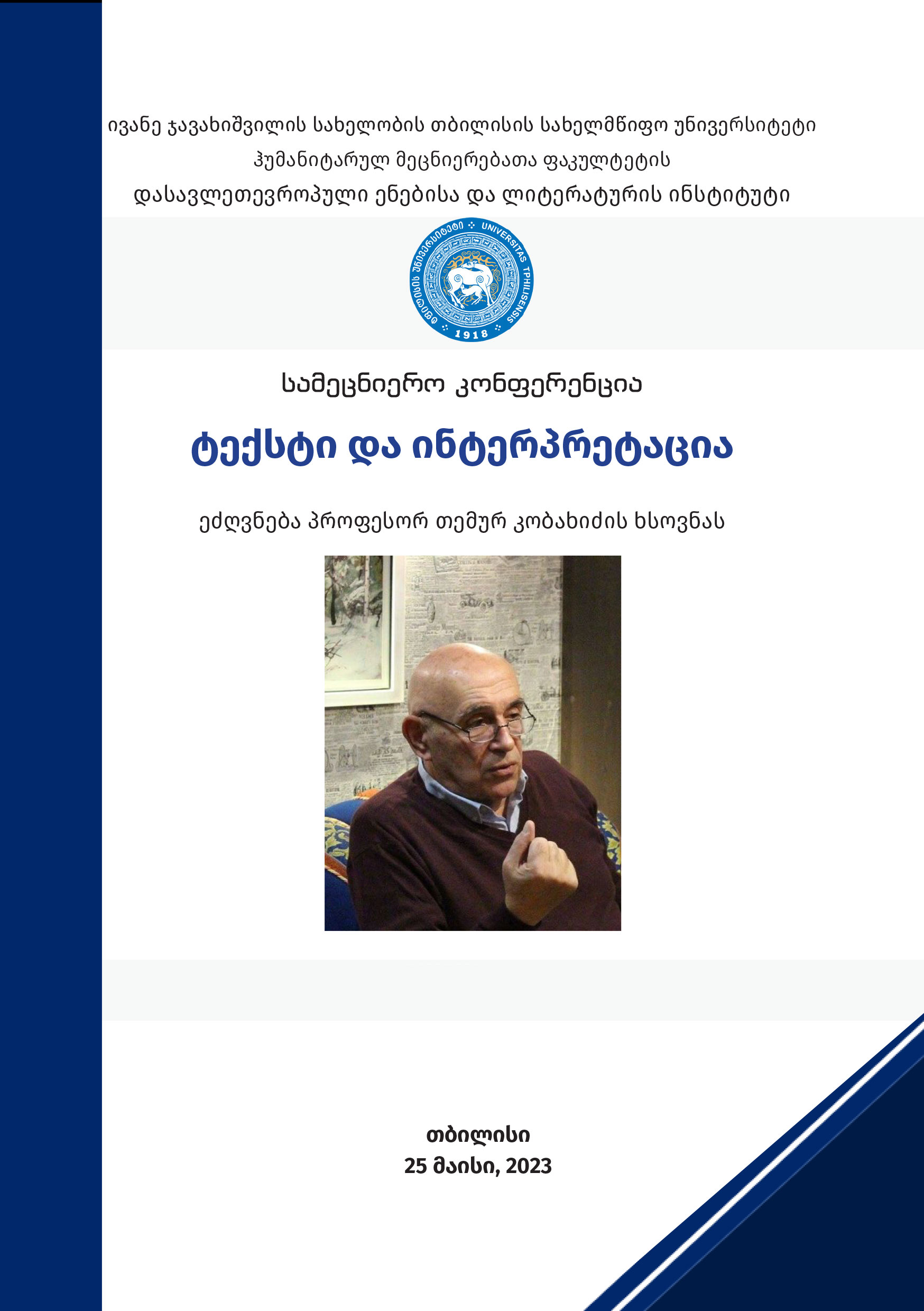The Stage Interpretation of Literary Themes in the Music of Benjamin Britten
DOI:
https://doi.org/10.55804/jtsu-2960-9461-2023-13Keywords:
B. Britten, interpretation, W. Shakespeare, Th. Mann, operaAbstract
Stage interpretation and adaptation of literary texts in the opera genre is a very complex phenomenon. Any musician undertaking this task will find himself/herself confronted with the problem that arises from the juxtaposition between the original text and its new version. Sometimes a composer and even a librettist has to transform the original text in a radical way to adapt it to its medium of music successfully.
The present paper demonstrates the ways in which literary texts are interpreted in Benjamin Britten’s two famous operas Midnight Summer Dream and Death in Venice.
An English composer and pianist, Benjamin Britten is an important figure in the history of the 20th century classic music. He is often regarded as a “father of English opera” whose multi-genre works are still popular today. The sources of Britten’s famous works are as diverse and versatile as the texts of Shakespeare, Thomas Mann, Guy de Maupassant, H. James, A. Tennyson, W. Blake, B. Johnson, J. Keats, Shelley, Coleridge, R. Burns, Th. Hardy and many other well-known authors.
Shakespeare’s play Midnight Summer Dream is a source of Britten’s opera under the same title. First musical interpretations of this play date back to the 17th century, when a great English composer Henry Purcell composed an opera The Fairy Queen. This play became the source of inspiration for many composers.
Britten composed Midnight Summer Dream in 1959. Directed by Britten himself, it was first staged on the 11th of June in 1960. Britten composed the opera without libretto - it was directly based on Shakespeare’s play. The composer made essential changes to the source text. These changes are especially evident in the first act. The main part of the first act was not included in the opera version. Unlike the play, the whole plot is set in the forest and, consequently, the functions and roles of the characters are completely changed.
Like Shakespeare, who uses different poetic languages for his characters, Britten’s musical material is also divergent. We should especially mark out the figure of Oberon whose extraordinary character is easy to see in his musical party which was written for a countertenor. This helped to intensify Oberon’s magic and his sense as a weird character.
Oberon’s party is a combination of contrasting, expressive and dramatic possibilities. On the one hand, it reminds us musical traditions of the past time and castrates who are simultaneously associated with power and femininity, on the other.
The role of Titania is a powerful Soprano overshadowing Oberon both dramatically and musically at the beginning, but the balance is shifted in the third act. Titania’s phrases become simple and dull. As a matter of fact, the opera does not tackle the problems that are raised in Shakespeare’s play.
Death in Venice is Britten’s last opera composed not very long before his death. Its central theme is death. The source of libretto is Thomas Mann’s novella Death in Venice.
Britten attempted to create an English version of the German novella that is full of complex philosophical ideas. His Achenbach can be regarded as a very sensitive, reserved intellectual, English gentleman with deep thoughts of death and mysticism.
As we have seen, Britten’s above-discussed works differ from the original texts of Shakespeare and Thomas Mann. They offer specific interpretations of the material in order to realize the composer’s intention. Consequently, they are moving away from their original sources and can be understood in different ways.

